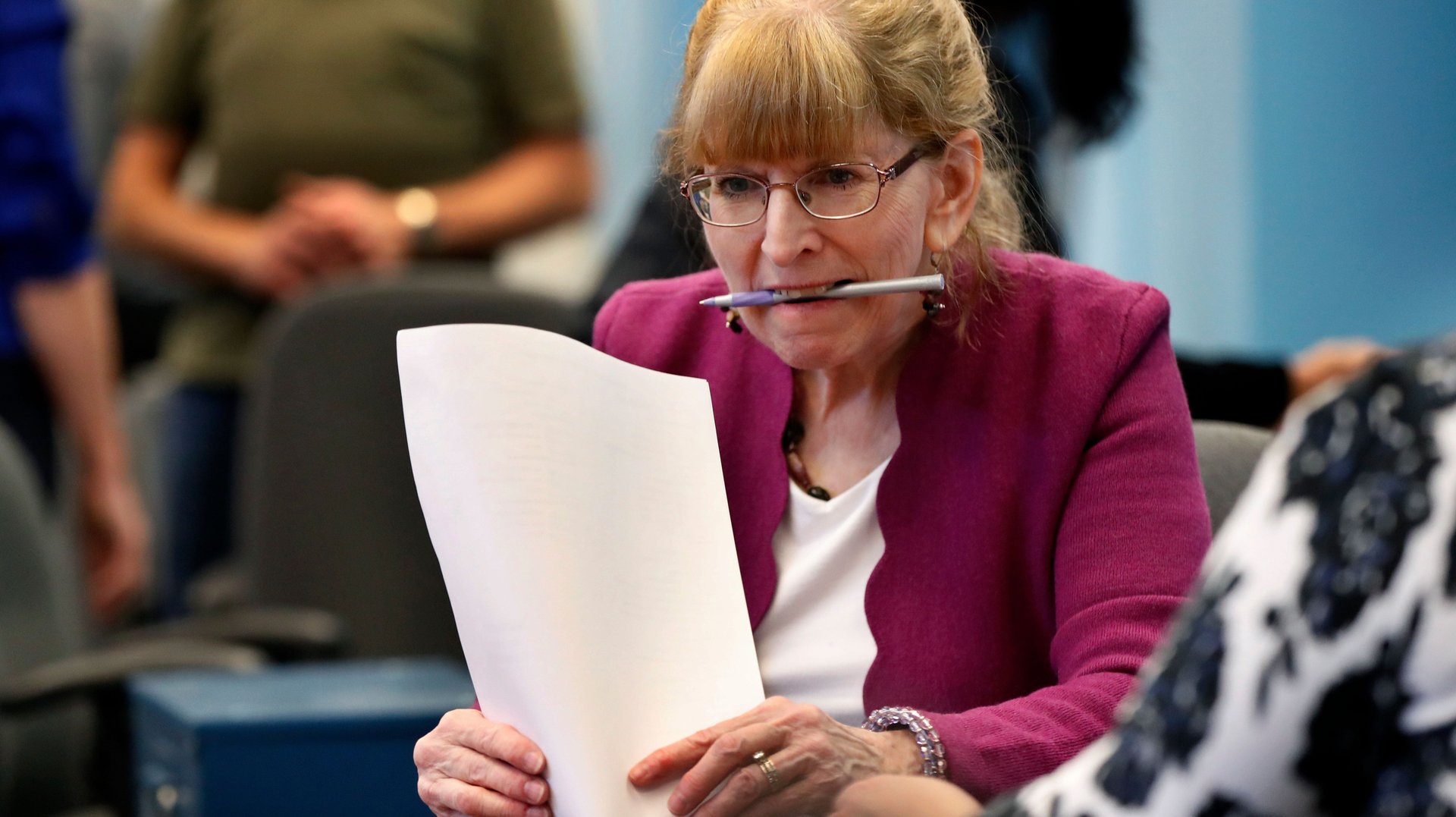An algorithm decided a US congressional race in Maine
Update Nov. 15, 5:30 pm EST: The Democratic candidate for Maine’s 2nd congressional district was losing after results came in on election night last week. But on Nov. 15, state officials announced he won due to the state’s ranked-choice voting.


Update Nov. 15, 5:30 pm EST: The Democratic candidate for Maine’s 2nd congressional district was losing after results came in on election night last week. But on Nov. 15, state officials announced he won due to the state’s ranked-choice voting.
Maine became the first US state to deploy that system, which allows voters to essentially spread their vote across all candidates in races of three or more by ranking them in their order of preference. If the winning candidate fails to get more than 50% of the first-choice votes, an algorithm is used to reassign the votes of people whose first choice lost to their second choice.
For Bruce Poliquin, the Republican in the race, that meant losing. He won 46.2% of the first-choice vote vs. his Democratic opponent Jared Golden’s 45.5%. But when taking into account voters’ second and third choices, his share was 49.43% and Golden’s 50.53%.
For the recount, the two independent candidates in the race—they got around 8% of the first-choice vote—were dropped off. The votes of their supporters went to their second choice—or their third, if the second wasn’t Poliquin or Golden. Here’s how the state explained the process to voters:
Ranked-choice voting has been used in some cities in municipal elections; Maine is the first state to apply it to congressional races. Maine voters approved the system in a referendum in 2016, but it got caught up in legal scuffles and was rolled out for the first time this year.
The process was challenged again, even before votes are fully re-tallied. Earlier this week, Poliquin filed a lawsuit in federal court against Maine’s Secretary of State, arguing that ranked-choice violates the Constitution and asking the judge to stop the recount. His request was denied, but Poliquin doesn’t intend to drop the lawsuit.
“It is now officially clear I won the constitutional ‘one-person, one-vote’ first choice election on Election Day that has been used in Maine for more than one hundred years,” he said in a statement. “We will proceed with our constitutional concerns about the rank vote algorithm.”
This story was updated Nov. 15 to include the election results released that day.